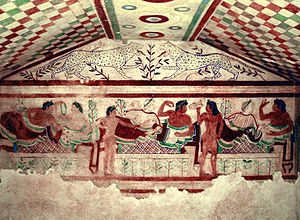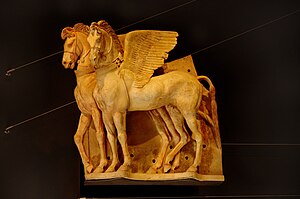185.91.150.130 - IP Lookup: Free IP Address Lookup, Postal Code Lookup, IP Location Lookup, IP ASN, Public IP
Country:
Region:
City:
Location:
Time Zone:
Postal Code:
IP information under different IP Channel
ip-api
Country
Region
City
ASN
Time Zone
ISP
Blacklist
Proxy
Latitude
Longitude
Postal
Route
Luminati
Country
Region
62
City
montaltodicastro
ASN
Time Zone
Europe/Rome
ISP
Etruria Wi-fi S.r.l.
Latitude
Longitude
Postal
IPinfo
Country
Region
City
ASN
Time Zone
ISP
Blacklist
Proxy
Latitude
Longitude
Postal
Route
IP2Location
185.91.150.130Country
Region
lazio
City
tarquinia
Time Zone
Europe/Rome
ISP
Language
User-Agent
Latitude
Longitude
Postal
db-ip
Country
Region
City
ASN
Time Zone
ISP
Blacklist
Proxy
Latitude
Longitude
Postal
Route
ipdata
Country
Region
City
ASN
Time Zone
ISP
Blacklist
Proxy
Latitude
Longitude
Postal
Route
Popular places and events near this IP address
Tarquinia
Town in Lazio, Italy
Distance: Approx. 562 meters
Latitude and longitude: 42.24916667,11.75611111
Tarquinia (Italian: [tarˈkwiːnja]), formerly Corneto, is an old city in the province of Viterbo, Lazio, Central Italy, known chiefly for its ancient Etruscan tombs in the widespread necropoleis, or cemeteries. Tarquinia was designated as a UNESCO World Heritage site, acknowledging its exceptional contribution to our understanding of Etruscan civilization. In 1922, it was renamed after the ancient city of Tarquinii (Roman) or Tarch(u)na (Etruscan).

Tomb of Orcus
Etruscan hypogeum (burial chamber) in Tarquinia, Italy
Distance: Approx. 2103 meters
Latitude and longitude: 42.24666667,11.78
The Tomb of Orcus (Italian: Tomba dell'Orco), sometimes called the Tomb of Murina (Italian: Tomba dei Murina), is a 4th-century BC Etruscan hypogeum (burial chamber) in Tarquinia, Italy. Discovered in 1868, it displays Hellenistic influences in its remarkable murals, which include the portrait of Velia Velcha, an Etruscan noblewoman, and the only known pictorial representation of the daemon Tuchulcha. In general, the murals are noted for their depiction of death, evil, and unhappiness.

Tomb of the Whipping
Etruscan tomb in Italy known for its erotic frescoes
Distance: Approx. 1248 meters
Latitude and longitude: 42.24930556,11.77022222
The Tomb of the Whipping (Italian: Tomba della Fustigazione) is an Etruscan tomb in the Necropolis of Monterozzi near Tarquinia, Lazio, Italy. It is dated to approximately 490 BC and named after a fresco of two men who flog a woman in an erotic context. The tomb was discovered and excavated in 1960 by Carlo Maurilio Lerici.

Tomb of the Leopards
Etruscan burial complex
Distance: Approx. 1176 meters
Latitude and longitude: 42.25055556,11.77
The Tomb of the Leopards (Italian: Tomba dei leopardi) is an Etruscan burial chamber so called for the confronted leopards painted above a banquet scene. The tomb is located within the Necropolis of Monterozzi, near Tarquinia, Lazio, Italy, and dates to around 470–450 BC. The painting is one of the best-preserved murals of Tarquinia, and is known for "its lively coloring, and its animated depictions rich with gestures," and is influenced by the Greek-Attic art of the first quarter of the fifth century BC. The banqueters are "elegantly dressed" male-female couples attended by two nude boys carrying serving implements. The women are depicted as fair-skinned and the men as dark, in keeping with the gender conventions established in Archaic Greece, Ancient Near East and Ancient Egypt.

Monterozzi necropolis
Etruscan necropolis in Lazio, Italy
Distance: Approx. 1176 meters
Latitude and longitude: 42.25055556,11.77
The Monterozzi necropolis (Italian: Necropoli dei Monterozzi) is an Etruscan necropolis on a hill east of Tarquinia in Lazio, Italy. The necropolis has about 6,000 graves, the oldest of which dates to the 7th century BC. About 200 of the tomb chambers are decorated with frescos. The painted tombs of the necropolis are the largest documentation of Etruscan pictorial art, and they are singular testaments to Etruscans' quotidian life, ceremonies, and mythology.

Tomb of Hunting and Fishing
Distance: Approx. 1095 meters
Latitude and longitude: 42.25,11.76861111
The Tomb of Hunting and Fishing (Italian: Tomba della Caccia e Pesca), formerly known as the Tomb of the Hunter (Tomba del Cacciatore), is an Etruscan tomb in the Necropolis of Monterozzi near Tarquinia, Lazio, Italy. It was discovered in 1873 and has been dated variously to about 530–520 BC, 520 BC, 510 BC or 510–500 BC. Stephan Steingräber calls it "unquestionably one of the most beautiful and original of the Tarquinian tombs from the Late Archaic period." R. Ross Holloway emphasizes the reduction of humans to small figures in a large natural environment. There were no precedents for this in Ancient Greek art or in the Etruscan art it influenced.

Tomb of the Triclinium
Etruscan tomb in the Necropolis of Monterozzi near Tarquinia, Italy
Distance: Approx. 1375 meters
Latitude and longitude: 42.24888889,11.77166667
The Tomb of the Triclinium (Italian: Tomba del Triclinio) ) is an Etruscan tomb in the Necropolis of Monterozzi (near Tarquinia, Italy) dated to approximately 470 BC. The tomb is named after the Roman triclinium, a type of formal dining room, which appears in the frescoes of the tomb. It has been described as one of the most famous of all Etruscan tombs. Since its discovery in 1830, the tomb's frescoes have deteriorated and lost some of their color and detail.
Tarquinia National Museum
Archaeological museum in Lazio, Italy
Distance: Approx. 108 meters
Latitude and longitude: 42.25361111,11.75555556
The Tarquinia National Museum (Italian: Museo Archeologico Nazionale Tarquiniense) is an archaeological museum dedicated to the Etruscan civilization in Tarquinia, Italy. Its collection consists primarily of the artifacts which were excavated from the Necropolis of Monterozzi to the east of the city. It is housed in the Palazzo Vitelleschi.

Tomb of the Blue Demons
Etruscan tomb
Distance: Approx. 1273 meters
Latitude and longitude: 42.24888889,11.77027778
The Tomb of the Blue Demons (Italian: Tomba dei Demoni Azzurri) is an Etruscan tomb in the Necropolis of Monterozzi near Tarquinia, Italy. It was discovered in 1985. The tomb is named after the blue and black-skinned demons which appear in an underworld scene on the right wall.

Tarquinia Cathedral
Cathedral in Tarquinia, Italy
Distance: Approx. 134 meters
Latitude and longitude: 42.2544,11.755
Tarquinia Cathedral (Italian: Duomo di Tarquinia; Concattedrale dei Santi Margherita e Martino) is a Roman Catholic cathedral in Tarquinia, Lazio, Italy, dedicated to Saint Margaret and Saint Martin.

Tomb of the Augurs
Etruscan burial chamber
Distance: Approx. 1176 meters
Latitude and longitude: 42.25055556,11.77
The Tomb of the Augurs (Italian Tomba degli Àuguri) is an Etruscan burial chamber so called because of a misinterpretation of one of the fresco figures on the right wall thought to be a Roman priest known as an augur. The tomb is located within the Necropolis of Monterozzi near Tarquinia, Lazio, Italy, and dates to around 530-520 BC. This tomb is one of the first tombs in Tarquinia to have figural decoration on all four walls of its main or only chamber.: xxxiv The wall decoration was frescoed between 530-520 BC by an Ionian Greek painter, perhaps from Phocaea, whose style was associated with that of the Northern Ionic workers active in Elmali.

Winged-Horses of Tarquinia
Distance: Approx. 3098 meters
Latitude and longitude: 42.25777778,11.79388889
The high-relief of the "Tarquinia Winged Horses" is a fragment of the colonnade that supported the pediment of the most important temple of the ancient Etruscan city of Tarquínia, at the Ara della Regina, better known as the Major Temple of Tarquínia. Nowadays situated at the Province of Viterbo (region of Lazio, Italy).
Weather in this IP's area
clear sky
7 Celsius
3 Celsius
7 Celsius
7 Celsius
1021 hPa
66 %
1021 hPa
1005 hPa
10000 meters
9.05 m/s
16.05 m/s
35 degree

